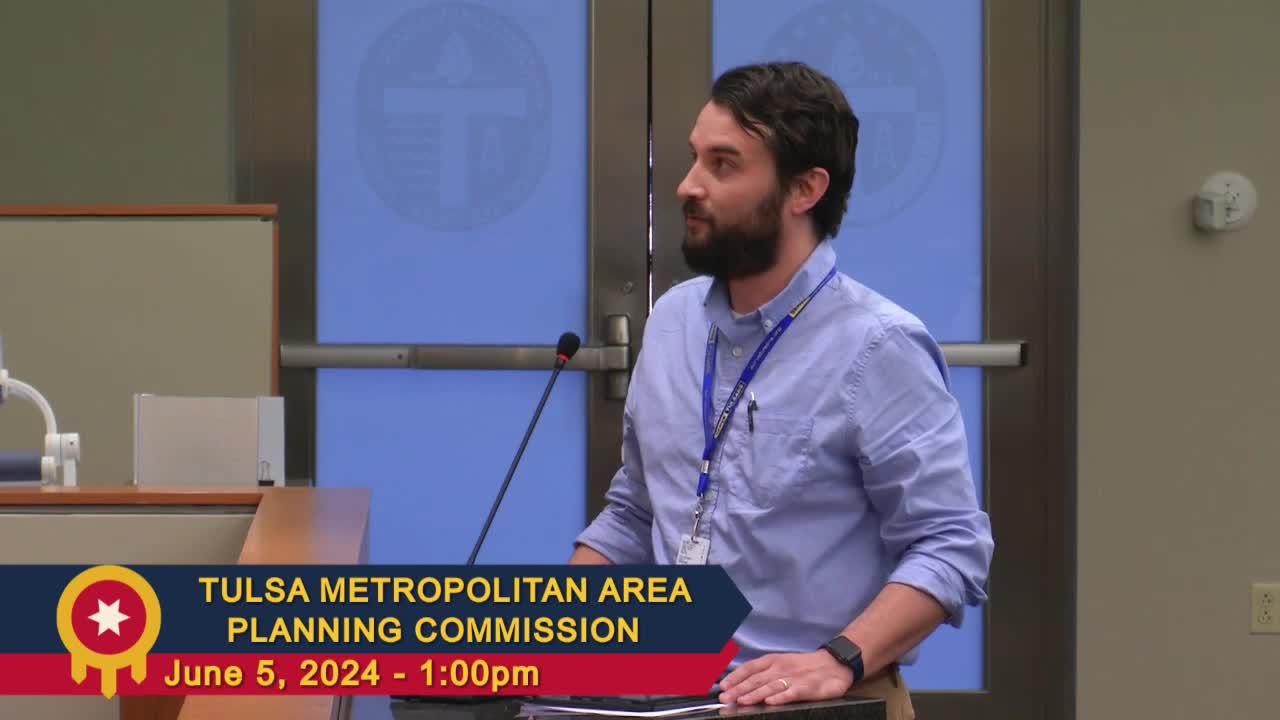City Council Approves Controversial Housing Development Plan
June 05, 2024 | Metropolitan Area Planning Commission Meetings, Tulsa, Tulsa County, Oklahoma

This article was created by AI summarizing key points discussed. AI makes mistakes, so for full details and context, please refer to the video of the full meeting. Please report any errors so we can fix them. Report an error »

In a recent government meeting, city officials discussed a proposed rezoning initiative aimed at addressing Tulsa's significant housing shortage. The plan seeks to develop 13,000 housing units over the next decade, with a focus on various housing types, including single-family homes and \"missing middle\" housing options.
The proposal under consideration involves rezoning a property from RS 2 to RS 5, which would allow for smaller lot sizes and increased density. The applicant, Nathan Cross, emphasized the need for this development to meet the growing housing demand and to improve local infrastructure, particularly sewer systems. He noted that the project would take approximately ten years to fully develop, with private streets proposed to alleviate some infrastructure concerns raised by city council members.
However, the proposal faced opposition from local residents who expressed concerns about the impact of increased density on the character of the neighborhood. Critics highlighted existing infrastructure issues, including inadequate roads and water lines, and questioned the necessity of such small lot sizes in an area known for its larger, historically significant homes. They argued that the proposed changes could lead to overcrowding and diminish property values.
Supporters of the rezoning, including city officials, argued that increasing housing density is essential for addressing the city's housing crisis and that the proposed development aligns with the city's goals for sustainable growth. They pointed out that the project would utilize existing infrastructure more efficiently, allowing for more residents to be served without significant additional costs to the city.
The meeting concluded with a motion to approve the rezoning, reflecting a broader commitment to tackling Tulsa's housing challenges, despite the ongoing debate about the best approach to achieve this goal. The city council will ultimately decide on the proposal, weighing the need for new housing against the concerns of existing residents.
The proposal under consideration involves rezoning a property from RS 2 to RS 5, which would allow for smaller lot sizes and increased density. The applicant, Nathan Cross, emphasized the need for this development to meet the growing housing demand and to improve local infrastructure, particularly sewer systems. He noted that the project would take approximately ten years to fully develop, with private streets proposed to alleviate some infrastructure concerns raised by city council members.
However, the proposal faced opposition from local residents who expressed concerns about the impact of increased density on the character of the neighborhood. Critics highlighted existing infrastructure issues, including inadequate roads and water lines, and questioned the necessity of such small lot sizes in an area known for its larger, historically significant homes. They argued that the proposed changes could lead to overcrowding and diminish property values.
Supporters of the rezoning, including city officials, argued that increasing housing density is essential for addressing the city's housing crisis and that the proposed development aligns with the city's goals for sustainable growth. They pointed out that the project would utilize existing infrastructure more efficiently, allowing for more residents to be served without significant additional costs to the city.
The meeting concluded with a motion to approve the rezoning, reflecting a broader commitment to tackling Tulsa's housing challenges, despite the ongoing debate about the best approach to achieve this goal. The city council will ultimately decide on the proposal, weighing the need for new housing against the concerns of existing residents.
View full meeting
This article is based on a recent meeting—watch the full video and explore the complete transcript for deeper insights into the discussion.
View full meeting
